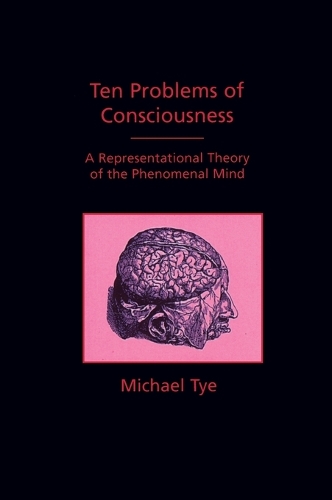
Ten Problems of Consciousness: A Representational Theory of the Phenomenal Mind
(Paperback)
Publishing Details
Ten Problems of Consciousness: A Representational Theory of the Phenomenal Mind
By (Author) Michael Tye
MIT Press Ltd
MIT Press
22nd January 1997
United States
Classifications
Tertiary Education
Non Fiction
Cognition and cognitive psychology
Phenomenology and Existentialism
153
Physical Properties
Paperback
264
Width 150mm, Height 226mm, Spine 15mm
431g
Description
Can neurophysiology ever reveal to us what it is like to smell a skunk or to experience pain In what does the feeling of happiness consist How is it that changes in the white and grey matter comprising our brains generate subjective sensations and feelings These are several of the questions that Michael Tye addresses, while formulating a theory about the phenomenal "what it feels like" aspect of consciousness. The test of any such theory, according to Tye, lies in how well it handles ten critical problems of consciousness. Tye argues that all experiences and all feelings represent things, and that their phenomenal aspects are to be understood in terms of what they represent. He develops this representational approach to consciousness in detail with great ingenuity and originality. In the book's first part Tye lays out the domain, the ten problems and an associated paradox, along with all the theories currently available and the difficulties they face. In part two, he develops his intentionalist approach to consciousness. Special summaries are provided in boxes and ten problems are illustrated with cartoons.
Reviews
"A fascinating account of the phenomenal aspects of consciousness.Clearly written, philosophically sophisticated, and scientificallyinformed..Tye's book develops a persuasive and, in many respects,original argument for the view that the qualitative side of ourmental life is representational in nature." Fred Dretske, Stanford University
Author Bio
Michael Tye is Professor of Philosophy at the University of Texas at Austin. He is the author of Ten Problems of Consciousness (1995), Consciousness, Color, and Content (2000), and Consciousness and Persons (2003), all published by the MIT Press.
